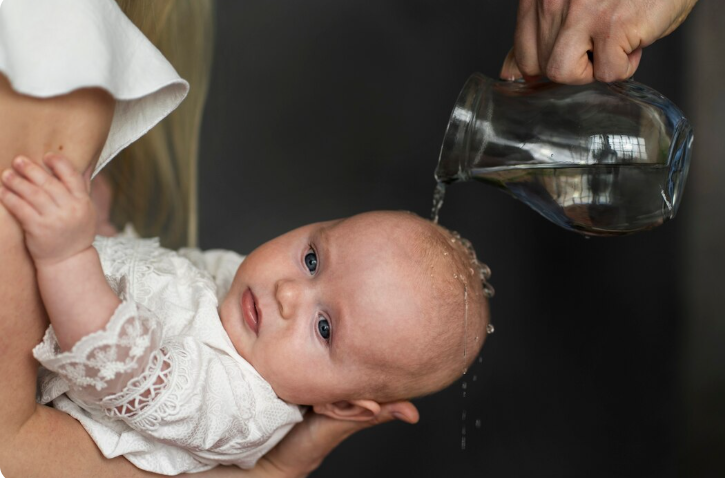Traditions and Blessings in Jewish Newborn Ceremonies

Welcoming a newborn into the world is one of the most joyous moments in any family’s life. In Jewish tradition, this milestone is marked with beautiful rituals and blessings that have been carried through generations. Jewish newborn ceremonies not only celebrate the arrival of a child but also connect them to their family’s heritage, the Jewish community, and the spiritual traditions that give meaning to life.
This blog will walk you through the core traditions, blessings, and symbolism surrounding Jewish newborn ceremonies, while highlighting their importance in shaping both personal and communal identity.
The Meaning Behind Jewish Newborn Ceremonies
Jewish newborn ceremonies are deeply spiritual and community-centered. They symbolize gratitude for new life, the continuity of the Jewish people, and the introduction of the child into a covenantal relationship with faith and tradition. These ceremonies differ slightly depending on whether the child is a boy or a girl, but they all share a sense of joy, reverence, and continuity.
At the heart of these ceremonies is the belief that each new life is a blessing not just to the family, but to the entire community. Parents, relatives, and friends gather to celebrate and share prayers that express hope, health, and blessings for the child’s future.
The Brit Milah (Covenant of Circumcision)
For boys, the most recognized of Jewish newborn ceremonies is the Brit Milah, or covenant of circumcision. This ritual takes place on the eighth day after birth, unless health concerns delay the procedure. The Brit Milah is more than a physical act; it is a spiritual covenant between the child and God, a continuation of the tradition that dates back to Abraham.
A mohel, a trained professional in Jewish law and medical practice, performs the circumcision. Family and friends gather to witness and support the parents, while blessings are recited to honor the sacredness of the moment. The child is given his Hebrew name during this ceremony, marking his formal entry into the Jewish community.
While some may focus on the physical aspect, the spiritual essence of the Brit Milah is its foundation: a connection to generations past and a dedication to carrying Jewish values forward.
The Simchat Bat (Celebration of a Daughter)
For girls, the Jewish newborn ceremony is often called a Simchat Bat, meaning “celebration of the daughter.” Unlike the Brit Milah, the timing is more flexible, often taking place within the first few weeks after birth.
During the Simchat Bat, the child is given her Hebrew name in the presence of family and community. This name is usually chosen with care, reflecting family history, biblical figures, or traits the parents hope the child will embody.
Prayers and blessings are offered for the baby’s health, happiness, and spiritual growth. Families often incorporate meaningful readings, songs, and personal reflections to create a heartfelt and unique celebration. The Simchat Bat emphasizes the joy of welcoming a daughter into the covenant of Jewish life and highlights the equal importance of boys and girls in preserving Jewish tradition.
The Role of Blessings
Blessings play a central role in Jewish newborn ceremonies. They express gratitude, affirm the sacredness of life, and ask for divine protection over the child.
-
Shehecheyanu Blessing: Recited to thank God for bringing the family to this joyful moment.
-
Birkat HaGomel: Sometimes said by the mother, expressing gratitude for safe recovery after childbirth.
-
Priestly Blessing (Birkat Kohanim): Invoked over the child, asking for God’s protection, kindness, and peace.
These blessings are often recited by parents, grandparents, or community leaders, creating an atmosphere of shared hope and love.
Naming Traditions in Jewish Newborn Ceremonies
Naming is one of the most significant parts of Jewish newborn ceremonies. A Hebrew name ties the child to Jewish history, tradition, and identity.
-
For Ashkenazi Jews, names are often chosen in memory of deceased relatives, preserving their legacy.
-
For Sephardic Jews, names may honor living relatives, celebrating continuity and connection.
The Hebrew name becomes central in religious life, used in prayers, Torah readings, and lifecycle events like Bar or Bat Mitzvahs and weddings. Parents often select names that carry deep meaning, whether biblical, ancestral, or symbolic of values they wish to instill.
Community and Celebration
Jewish newborn ceremonies extend beyond the immediate family; they bring the community together. Friends, relatives, and congregants gather to share in the joy, affirm the family’s connection to Jewish life, and pledge their support in raising the child within the tradition.
Celebrations often include festive meals, songs, and toasts. The gathering reinforces the idea that raising a child in Judaism is not just the responsibility of parents but of the whole community.
Modern Adaptations of Jewish Newborn Ceremonies
In contemporary Jewish life, families sometimes personalize Jewish newborn ceremonies to reflect both tradition and modern values. While the core elements, naming, blessings, and community celebration remain, families may add creative touches:
-
Personalized blessings or poetry written by parents or grandparents.
-
Incorporating music or rituals meaningful to the family.
-
Holding ceremonies in homes, synagogues, or even outdoor spaces.
-
Creating inclusive ceremonies that honor interfaith families or blended traditions.
These adaptations show how Jewish newborn ceremonies continue to evolve while preserving their timeless significance.
The Spiritual and Emotional Impact
Beyond tradition, Jewish newborn ceremonies carry deep emotional weight. Parents often describe a profound sense of connection when blessing their child or announcing their Hebrew name. Grandparents find joy in seeing family traditions carried forward.
For the wider community, each ceremony is a reminder of the collective responsibility to nurture the next generation. It is a celebration not just of life but of continuity, heritage, and hope.
Conclusion
Jewish newborn ceremonies beautifully blend tradition, spirituality, and community. Whether through the Brit Milah for boys or the Simchat Bat for girls, these rituals honor the arrival of new life while embedding it within the larger fabric of Jewish history and faith.
At their core, these ceremonies are about blessings, expressions of gratitude for the miracle of life, prayers for the child’s health and happiness, and the joy of welcoming them into a tradition that has endured for thousands of years.
By participating in Jewish newborn ceremonies, families and communities not only celebrate the child but also affirm their commitment to sustaining Jewish values and traditions for generations to come.








